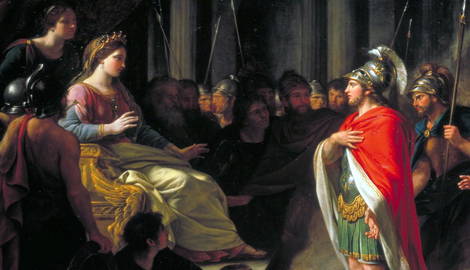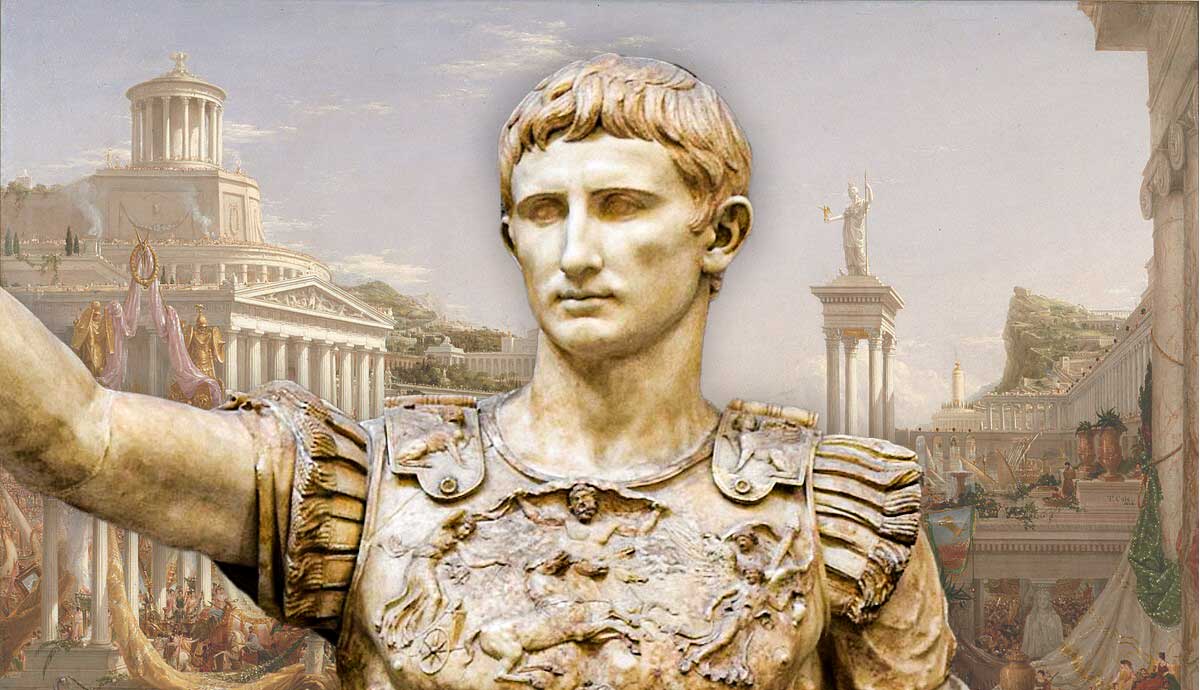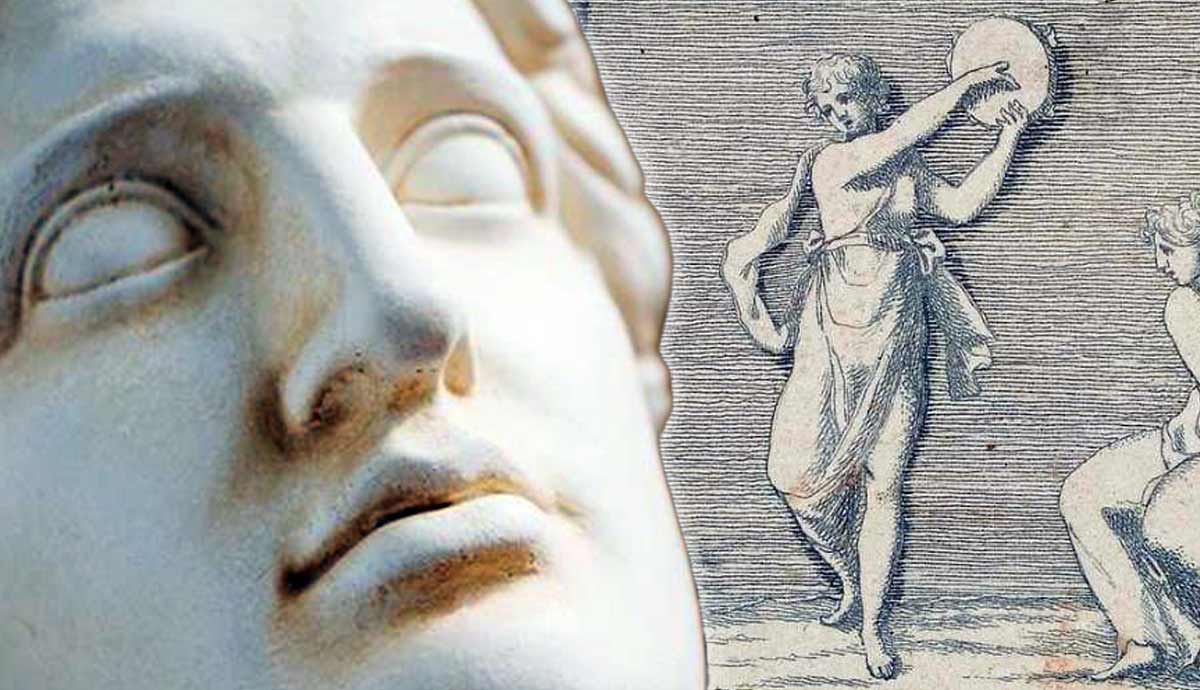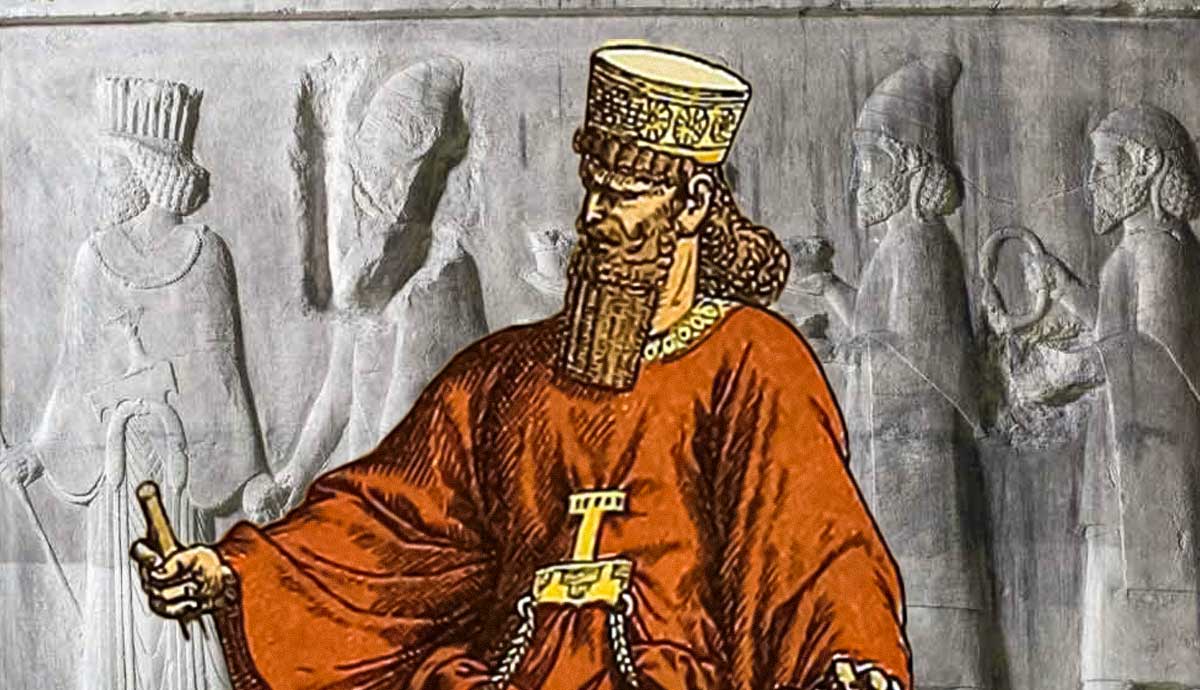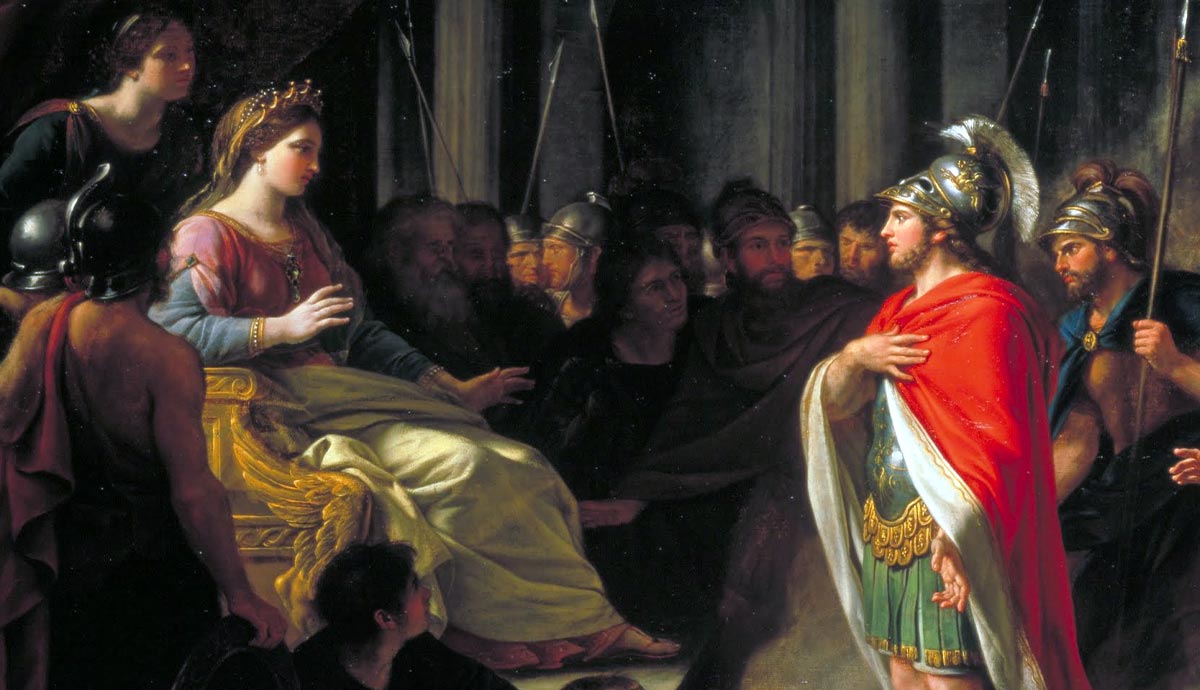
Dido and Aeneas are perhaps the two most iconic lovers in an ancient epic. Their brief relationship becomes a haunting episode in the Aeneid, creating profound repercussions for Aeneas and his quest. Dido, the legendary queen of Carthage, and Aeneas, a Trojan prince fated to establish the Roman race, meet in book one of Virgil’s Aeneid and soon fall passionately in love with one another. However, their intense romance is soon transformed into tragedy, as Aeneas leaves Dido to fulfill his mission, which drives the Carthaginian queen to despair and suicide.
Virgil’s Aeneid: What Is It & Why Was It Written?

The Aeneid is an epic poem written by the Roman poet Virgil between 29 and 19 BCE, during the reign of the emperor Augustus. Patronized by Rome’s first emperor, Virgil intended for the work to rival Homer’s Iliad and Odyssey, and to establish one of the founding myths of Roman civilization.
At the center of its narrative is the figure of Aeneas, a Trojan hero and the mythical ancestor of the Romans. The poem charts his journey from the ruins of Troy all the way to Italy, where, after eventually winning a war, he establishes the foundations of what will become the Roman civilization.
Embedded within this narrative are numerous political themes and ideas, reflecting the efforts of Augustus’s new regime to establish a Golden Age of Roman culture. Aeneas’s obedience to fate and the gods is a model of Roman pietas, a virtue that combined duty to the gods, the state, and one’s family.

In contrast to the chaos of civil war that had recently afflicted Rome, Virgil’s poem was written to offer a vision of purposeful Roman order and destiny. Jupiter’s prophecy in book one that Rome will have “empire without end” (imperium sine fine) emphasized the divine sanction behind Roman expansion and Augustus’s authority as a monarchical ruler (even if he disguised it).
At the same time, the tone and narrative of the work offer some competing interpretations that suggest that Virgil may not have been completely enamored with the new Augustan Age. Although the poem celebrates Rome’s future greatness, characters like Dido, Turnus, and even Aeneas suffer for the sake of destiny, often manipulated and driven on by the gods. These various tensions, between glory and grief, heroism and sacrifice, make the Aeneid a richly layered work.
What Happens to Dido & Aeneas in the Story?

Dido and Aeneas first meet in book one of the Aeneid, when Aeneas and his fleet are blown off course and land near Carthage in North Africa. Dido, a widowed queen who has recently founded the city, welcomes the Trojans and listens intently as Aeneas recounts the fall of Troy and his wearisome travels up to that point.
Empathizing with this shipwrecked traveller, Dido confesses her growing love for Aeneas to her sister Anna in book four. Though she had sworn never to love again, she feels drawn to the Trojan hero by what she believes is some sort of divine will that has brought them together.

Indeed, behind the scenes of these mortal affairs, the goddesses Juno and Venus each push for a union between the two, albeit for divergent reasons. Juno, who is a patron of Carthage, wishes to thwart Aeneas’s attempts to found the civilization of Rome, which is destined to rival Carthage. Venus, who is the divine mother of Aeneas, sees this placation of Juno as a temporary expedient that will keep her son safe from Juno’s wrath.
As such, the two goddesses make a pact and orchestrate a storm that drives Aeneas and Dido into a cave whilst they are out hunting. Huddled inside the cave, the two lovers consummate, although Virgil loads the scenes with foreboding, saying “That day was the first cause of death, and first of sorrow” (4.169).

After this passionate event, Dido considers the two to be married, whilst Aeneas only sees the union as temporary. It is not long before Jupiter, who also has a stake in the fate of the epic’s narrative, sends Mercury to remind Aeneas of his divine mission to found a new Troy in Italy. With this divine prompting, Aeneas resolves to leave, even though he knows it will devastate Dido.
When he informs Dido that he must leave, she pleads with him to stay, accusing him of cruelty and betrayal. Even with such supplications, he responds that he must obey the gods, not his own desires, asserting that he “sails for Italy not of [his] own free will” (4.361).

After he departs, in the tragic crescendo of the episode, a distraught Dido constructs a funeral pyre, ostensibly to burn Aeneas’ belongings. Instead, she climbs on top of it and, after cursing Aeneas and foretelling eternal enmity between Carthage and Rome, falls on Aeneas’s sword, taking her own life.
This dramatic culmination of the episode evokes pathos for Dido and highlights the divine intervention in mortal affairs. As Mercury oversees Aeneas’s departure under orders from Jupiter, Juno sends Iris to release Dido’s spirit.
Historical & Imperial Subtexts of the Episode

Enmeshed within the emotional climax of the Dido and Aeneas episode are allusions to the future rivalry between Carthage and Rome. Indeed, the whole episode can be read as a literary dramatization of Rome’s historical relationship with Carthage and a subtle reflection on the fate of competing empires.
Whilst the initial romance and amicability between the two reflect the close geographical proximity of Carthage and early Rome, the later anguish between Aeneas and Dido symbolically anticipates the Punic Wars, the centuries-long conflict between Rome and Carthage that ended with Rome’s complete destruction of Carthage in 146 BCE.
In this light, Dido’s curse takes on political significance, as she invokes a future avenger who will rise from her people to punish Aeneas’ descendants. This line has often been read as a poetic foreshadowing of Hannibal, the Carthaginian general who brought war to Rome’s doorstep during the Second Punic War.

From an Augustan perspective, the episode also serves to affirm Rome’s imperial destiny. Virgil emphasizes that Aeneas must leave Dido behind, not out of cruelty, but because the future of Rome demands his perseverance in heading to Italy.
As such, his personal suffering and Dido’s ruin become sacrifices for a greater historical purpose with the destiny of Rome at its center. This aligns with Augustus’s own presentation of his regime as the fulfillment of divine fate, restoring order after civil war and extending Roman rule throughout the Mediterranean world.
Crucially, however, Virgil does not present this narrative uncritically. The gods’ manipulation of events, Aeneas’s visible emotional turmoil, and Dido’s harrowing end all suggest the immense personal cost of such divinely ordained destiny. Readers are not told to simply admire the triumph of fate but are invited to consider the toll it exacts on those caught within it. In this way, Virgil’s poem can be read not just as an endorsement of the empire, but as a meditation on its moral complexity.
Dido as Tragic Heroine vs Aeneas as Pious Patriot

Dido’s character is one of the most emotionally compelling characters in the Aeneid, and her downfall encapsulates many of the conventions of Greek tragedy. At first, she is presented as a powerful and respected queen who has led her people resolutely in founding the city of Carthage.
Her love for Aeneas, however, overwhelms her judgment and leads her astray from this mission, as she neglects her civic responsibilities at the risk of losing the support of her people. Virgil thus presents her descent into despair with especially vivid imagery, as “She wanders like a wounded doe” (4.68-69), wounded not by a hunter but by her innocent love for Aeneas.
Moreover, her tragedy is enhanced by her own sincerity, as she does not scheme or manipulate but instead feels deeply and authentically for the Trojan hero. To compound these elements, her eventual death is staged with dramatic pathos, and Virgil’s poetic voice shows deep sympathy for her suffering.
Yet she also becomes vengeful, cursing Aeneas and prophesying eternal enmity between their descendants. These complex emotions elevate her from a mere victim to a figure of tragic grandeur, comparable to other ancient tragic figures, such as Medea.

In contrast, Aeneas is often read as emotionally restrained and morally conflicted. He is not without feeling. He weeps as he prepares to leave Dido. But Aeneas consistently chooses pietas over passion. This makes him admirable by contemporary Roman standards, but also makes it difficult for modern readers to fully embrace and empathize with him.
In this way, the contrast between Dido and Aeneas encapsulates two different sets of values quite explicitly and intentionally. Dido represents individual desire, political independence, and emotional truth, whereas Aeneas represents collective duty, divine obedience, and the historical inevitability of Rome’s rise.
Their relationship, and its collapse, illustrate the painful disjunction between personal love and collective responsibility. This moral and emotional contrast is one of the reasons why book four remains one of the most studied and discussed episodes in Latin literature.
The Legacy & Reception of the Episode

The story of Dido and Aeneas has resonated with audiences since its publication 2,000 years ago. However, the reception and interpretation of its protagonists have been remarkably varied over that time.
In late antiquity and the Middle Ages, Dido was often portrayed as a cautionary example of passion overwhelming more rational reason. Strikingly, even though she is now usually seen as a victim in the episode, in Dante’s Inferno, she appears in the second circle of Hell, among those condemned for lust. The Renaissance poet’s placement reflects a Christian moral framework that judged her actions harshly, despite Virgil’s sympathetic treatment.
Later, however, in the early modern period, Dido began to be reimagined as a noble and tragic heroine. For example, in Christopher Marlowe’s Dido, Queen of Carthage, she is presented as a powerful figure undone by betrayal.

In the same vein, in the late 17th century, Henry Purcell’s opera Dido and Aeneas distilled the tragedy into a deeply affecting musical work. The opera’s final aria, “When I am laid in earth,” gives Dido’s death a haunting emotional weight that has kept it central in the operatic canon.
Modern scholarship and reinterpretations have continued to build on these interpretations and explore the episode’s richness. Feminist critics have emphasized how Dido’s voice is silenced or marginalized in the service of male heroism, whilst post-colonial readings have considered her as a figure representing the colonized, whose city is sacrificed to the narrative of imperial destiny.
In contemporary literature, visual art, and even film, Dido often appears as a symbol of resistance, grief, or lost power. What remains constant, however, is the story’s emotional and symbolic resonance to different readers and audiences.
What is perhaps most captivating is the fact that Virgil’s telling of their doomed romance offers no simple resolution, and it is this complexity that has allowed the episode to endure. It continues to inspire not only rich scholarly debate but also a body of continuous creative reinterpretations across a wide range of media.
